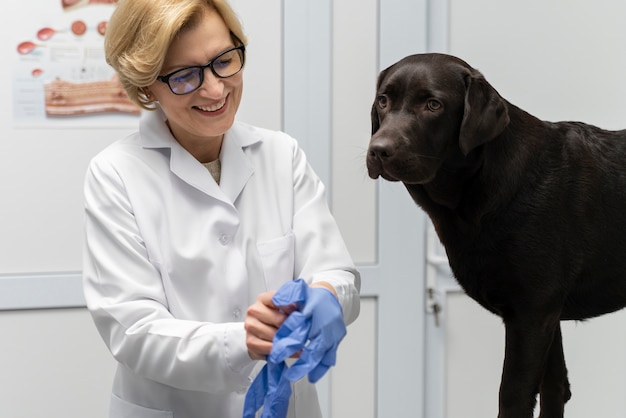Understanding the Difference Between Primary and Preventive Pet Care | Pet Method Animal Hospital


What’s the Difference Between Primary and Preventive Care for Pets?
As a loving pet parent, you want nothing more than to keep your furry companion healthy, happy, and by your side for as many years as possible. Regular vet visits are a big part of achieving that goal—but did you know there’s a difference between primary care and preventive care? At Pet Method Animal Hospital, we often meet pet owners who assume these terms are interchangeable. While they are closely related, they each play a unique role in your pet’s health journey.
Let’s start with primary care. Think of it as your pet’s general healthcare, much like a family doctor for humans. A primary care veterinarian is your go-to expert for everything from annual exams and vaccinations to diagnosing and treating common illnesses and managing chronic conditions. When your dog develops an ear infection or your cat starts losing weight unexpectedly, your primary care vet is the one you turn to for answers, treatment, and long-term management. It’s an ongoing relationship that ensures your pet’s health is monitored and supported throughout every stage of life.
On the other hand, preventive care is a proactive approach to health. Its goal is to stop illness before it starts. Preventive care includes services like routine vaccinations, flea and tick prevention, dental cleanings, blood screenings, and wellness exams. While these are often provided during your pet’s regular visits to a primary care vet, the purpose is different: instead of treating illness, preventive care aims to detect and prevent health issues before they become serious problems.
For example, catching kidney disease early during a routine blood panel can make a major difference in your pet’s outcome and quality of life. Similarly, maintaining a consistent vaccination schedule helps shield your pet from dangerous—and sometimes deadly—diseases like rabies, distemper, and parvovirus. Preventive care doesn’t just protect your pet; it also protects your family and community by reducing the spread of infectious diseases.
Here’s where the overlap occurs: preventive care is often delivered through your primary care veterinarian. In other words, the same trusted vet you visit when your pet is sick is also the one guiding you through preventive steps to help them stay well. This integrated approach helps build a comprehensive picture of your pet’s health, allowing your veterinary team to provide personalized advice and adjust recommendations as your pet ages or their needs change.
So why is it important to understand the difference? Because recognizing the value of both primary and preventive care helps pet parents make informed decisions. Waiting until your pet is visibly sick can lead to more expensive treatments and poorer outcomes. By embracing preventive care as a routine part of your pet’s wellness, you’re investing in a longer, healthier life for your animal companion—and potentially avoiding emergencies down the road.
At Pet Method Animal Hospital, we believe in proactive, compassionate, and comprehensive care. Whether your pet needs a wellness exam, a dental cleaning, or treatment for a sudden illness, our team is here to guide you every step of the way. Understanding the distinction between primary and preventive care empowers you to be a better advocate for your pet—and we’re proud to be your trusted partner in that mission.
Is your pet due for a checkup or vaccination? Take the next step in proactive pet care with Pet Method Animal Hospital. Visit us at 260 N Coit Rd, Suite 130,McKinney, TX, 75071 or call us today at (469) 581-8609 to schedule an appointment. Let’s work together to keep your furry friend healthy, happy, and thriving.



















